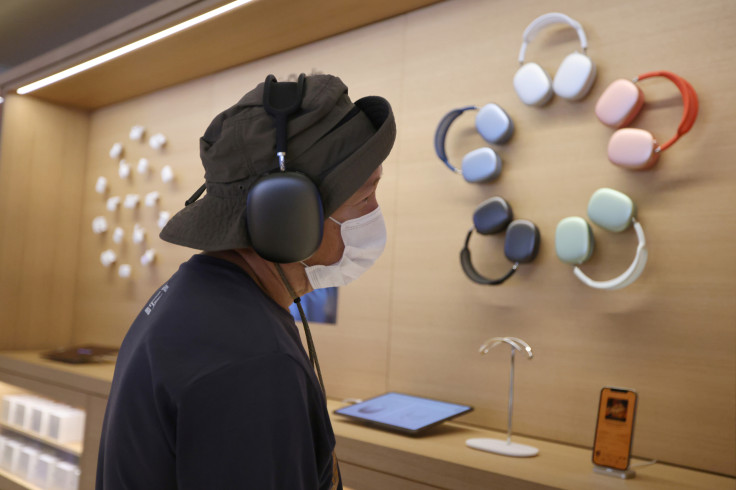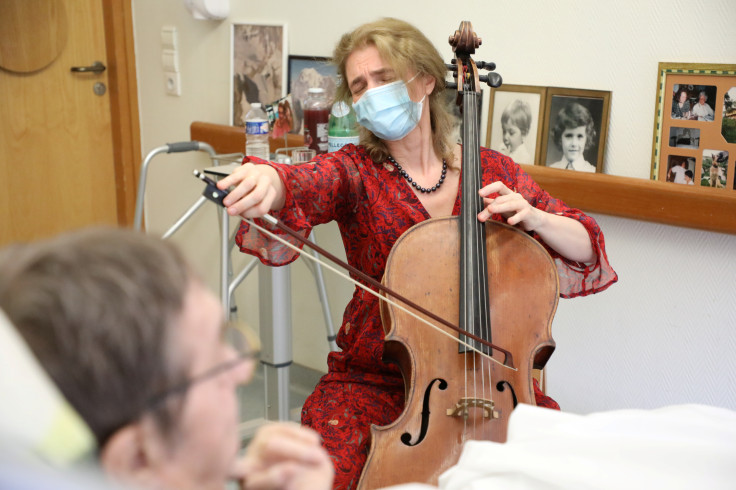New study examines the scope and integration of music therapy
A new study examines the scope and integration of a music therapy programme within 10 University Hospitals' medical centres.

There's a reason why music is considered a universal language – it is a medium that can be felt and experienced by people worldwide and can inspire palpable feelings of joy, comfort, motivation and bittersweet nostalgia. Personally, there's not a day that goes by that I myself don't listen to music for the exact same aforementioned reasons.
One of the many reasons why music is such a beloved form of artistic expression – that has sometimes been suppressed – is because of its effective healing powers. So it's no wonder that music has been integrated into various therapy programmes to help people whose lives have been affected by injury, illness, loss or disability.
To take a deeper look into the scope and effectiveness of music therapy, a new study has been carried out by University Hospitals (UH) Connor Whole Health in Cleveland, Ohio, which involved them examining the integration of their own music therapy programmes within 10 UH medical centres, making this the most extensive study of its kind.
The study in question was titled: 'Effectiveness of Medical Music Therapy Practice: Integrative Research using the Electronic Health Record (EMMPIRE): Rationale, Design, and Population Characteristics'.
This programme was designed to encourage music therapists to collaborate with the medical team at the centres in order to address the needs of patients with mental health, cardiovascular, respiratory and musculoskeletal conditions reported on their records.
Taking place between January 2017 and July 2020, the study involved researchers from UH Connor Whole Health examining the delivery and integration of music therapy across the UH health system, whilst analysing clinical and demographic characteristics of all adults that partook in the music therapy programme outside of emergency departments.
Overall, the extensive scope of the study allowed the team to examine over 14,200 music therapy sessions provided to over 7,300 unique patients, who had been referred to the programme by over a thousand healthcare professionals within UH medical centres over a three-year period.

Samuel Rodgers-Melnick, the lead author of the study, said: "In addition to the size of the EMMPIRE data set, this descriptive study is also novel in that it demonstrates our ability to use the electronic health record as a research tool. We compared the characteristics of the population seen by music therapy to the UH population overall to demonstrate the integration of the music therapy program."
To assess characteristics and also to draw comparisons of the music therapy population with hospitalisation trends reported by UH, the researchers separated the participants into two groups: the patients seen within Cuyahoga County hospitals and the patients seen outside of the County.
Eventually, this analysis did indeed reveal similarities in demographic and clinical characteristics.
For instance, the percentage of patients seen by music therapists who identified as Black/African American within Cuyahoga County was 48 per cent, which was reflective of the demographics of that county, where 48.3 per cent of Cleveland residents identify as Black/African American.
Seneca Block, Director of Expressive Therapies at UH Connor Whole Health and co-author of the study, said in a comment: "Music therapy services are embedded across the UH healthcare system and integrated into front-line interdisciplinary teams caring for critically ill patients."
Block concluded her statement by saying: "We are committed to providing non-pharmacologic support to patients from diverse backgrounds for both physical and psychological vulnerabilities."
The results of the study were published in the Journal of Integrative and Complementary Medicine, a leading journal focused on evaluating the impact and importance of music therapy, and their integration within medical care.
© Copyright IBTimes 2025. All rights reserved.






















